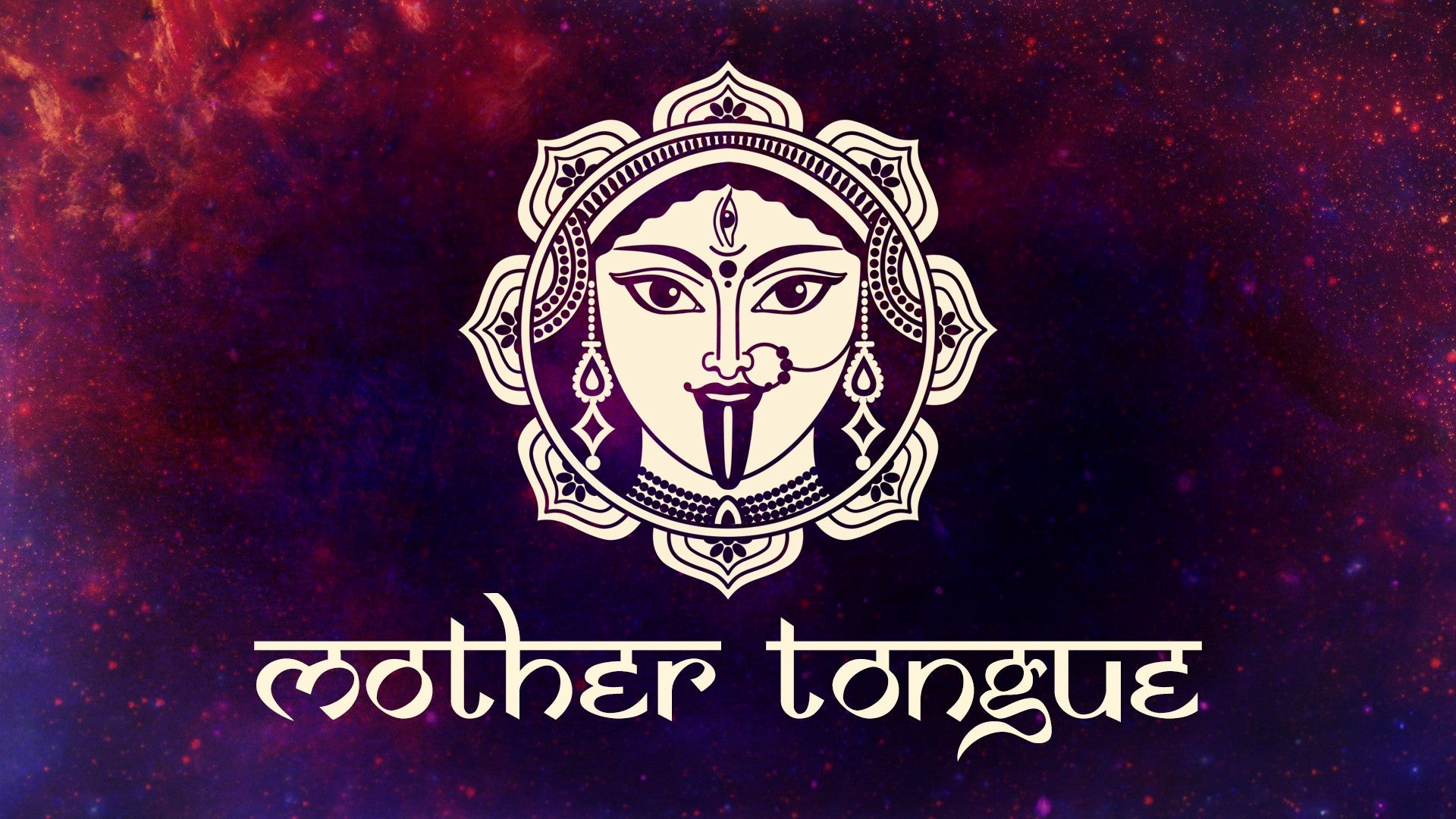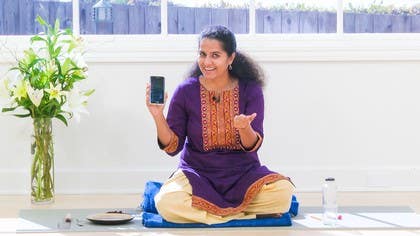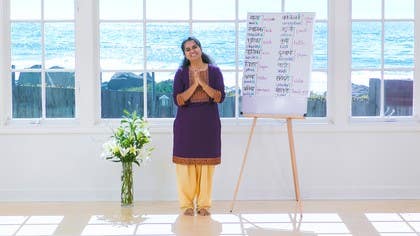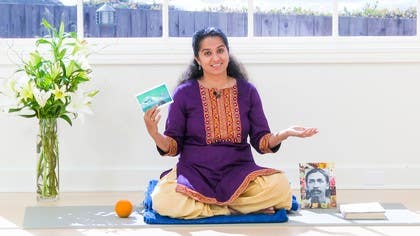Description
About This Video
Transcript
Read Full Transcript
Hi there, welcome again. We just looked at the masculine words in our previous series. Now we move on to the feminine words. Now, when you look at a beautiful woman, what happens? The jaw drops, right? So, that's the tip. If you have a word that ends with an A or an E, there are very good chances it would be a feminine word. We have a few objects here from our daily life that would help you practice these words. So the word for dish is sthaa lika, sthaa lika. I'd suggest you also close your eyes once, sthaa lika. So let's do it this way. When I show you the object, you look at it and you repeat with me, sthaa lika. Then close your eyes and repeat it once in your mind thinking of the picture of the dish, sthaa lika. Fantastic. A last time? Beautiful. So that's a sthaa lika. I think many of you are already familiar with this. It's the mala, mala. Now close your eyes and repeat the word for yourself. Fantastic. Together, mala. Very nice. When we looked at the words in the masculine, we had the spoon, the chama saha, the fork, kanta kaha and the knife, churika. See that? Churika. Close your eyes. Very good. So now your dinner table is set basically. You have the dish, the sthaa lika. You have the spoon, chama saha, the fork, kanta kaha and the knife, churika. You can also have the more useful kitchen one which is also the churika. All right. There we are. So we have some of these words with the aa. Some body parts that have the aa is the nose, the nasi ka. Nasi ka. Touch the tip of your nose like that and say nasi ka. And just for the fun of it, you can squeeze your nose and say nasi ka. Kidding. I mean, one learns a language when one plays with it. The more you play with it, the more you allow it to seep into the different parts of your life, the sooner you will get it. So nasi ka. Very good. Now the tongue. Jihwa. That's a tougher one to touch and say jihwa. Jihwa. Say that. Very good. Once more jihwa.
Lovely. A few relationships that use the word aa. So like in the masculine, we had the father Jana kaha. The word for mother is amba. Say that. Amba. Very nice. We'll go on to another one in the yoga world which is the source of all our problems. I think you've got it right. It is the ignorance. Avidya. Avidya. That is the biggest of cliches, they say. And when that is removed, one thing will happen. Sanskrit will flow. So remove ignorance from our life and many answers are given to us. Now let's look at some words ending with ee. The word for pencil is aankani. Aankani. Close your eyes and say it together. Aankani. Now if you are confident enough with your letters, it would also be a good idea to multitask a little bit. So when you close your eyes, don't just think of the object but start seeing if you can see how the word looks like written. Alright, so not just the object but also the letters and say the sound. Fantastic. So that's aankani. Kupi. Kupi. Say that. Together. Kupi. It can be any bottle. It's a bottle. This one. A very popular object. It's the duravani. Say that. Duravani. Once more. Now that word is formed because what this object does is it allows us to hear a sound from far. The word duravani is composed of dura which means far. Vani is the voice. So it's a voice that you hear from far. Duravani. Now keeping up with modern times, we have to use the word mobile phone. It's not just a phone. It's a mobile phone. So the fantastic thing of Sanskrit is that it allows us to construct new and newer words. I guess it happens in all languages but Sanskrit also is quite interesting in the way it does it. So the word for movement is jangama. That is mobile. Jangama. So you could be more precise and say this is a jangama. Duravani. But don't worry. If you say duravani, we'll get it. Another important word is lekhani. A pen. Lekhani. Now I'll see if you start getting this. Close your eyes. Say it once. Very good. Now if you had a colour pen and the word for colour is varna. What would you call this? A colour pen. Pen is lekhani. Colour is varna. So this would be a... You got it. Varna lekhani. Say that. Varna lekhani. Fantastic.
Let's look at a very important body part which has a word ending with e. It's the nadi. It's the channel through which all the different energies flow in the body. So that's nadi. Once more. Very good. Looking at relationships and a word that's important for us. It's the word for sister. The word for a brother was sahodaraha. Now if you had to end that word with an e, what would it be? That's it. Sahodari. Say that. Sahodari. Sahodaraha for the brother and sahodari for the sister. Very nice. In the yoga world, an important word is yogini. Yogini. It has the root form yogin. In the feminine, it becomes yogini. Really good. Now there are a few exceptions again. So it's not that all words ending with a are feminine or all words ending with e are feminine. We do have some words that end with a, like pita, which means father, but which actually is a masculine word. And that is because the root form is pitr. As we go ahead with the language, you will understand how these different root forms affect the way the word is formed. All right. But it's enough to know for now that there are certain words which might even end with a short vowel like a matthihi, which is also feminine or shakthihi, feminine. It's a short e, etc. So we've for now looked at some words with a and some words with e. We'll revise it a last time so that it's clear as you leave the show. Here it is. The word for dish. I'll say it once and then you repeat it. All right. So sthalika. Very good. Mala. Excellent. Churika. Very good. Some words with e. The bottle. Kupi. Ankani. Sound from far. Dura Vani. Excellent. Lekani. Varna Lekani. Great. I have a feeling they're going to get there very soon. Practice and it will be easy. Thank you.
Mother Tongue: Building Our Vocabulary
Comments
You need to be a subscriber to post a comment.
Please Log In or Create an Account to start your free trial.










